Programs
Mirai no Mori Program
Mirai no Mori programs are designed to equip children with the “essential life skills” they will require to overcome the variety of issues they may face when they become independent and create their own path for the future.
 |
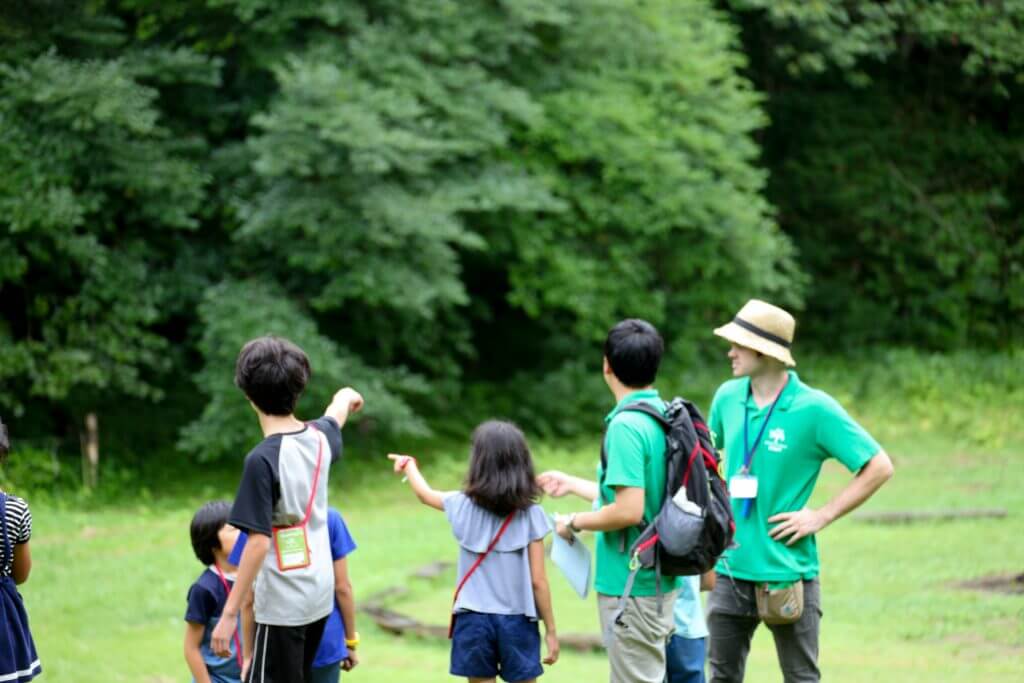 |
Essential Life Skills
When children become independent and live completely on their own at the age of 18, as they graduate from high school, their daily lives change significantly and suddenly from the protected life at homes. In their new daily life, they will face many new problems and challenges that they have never faced before. The “life skill” is the ability to think and act on their own and to come up with solutions to overcome these problems and challenges.
It is not possible for us to be with every child when a problem occurs or provide them with solutions to every problem they might encounter. Therefore, it is important to gain life skills while they are still under care so that when they become independent, they have the tools and knowledge to solve their problems and overcome their challenges, leading to a happier life. This ability is especially important to these children since they will have limited access to support and resources once they graduate.
The importance of life skills is recognized internationally, and the definitions and examples resonate strongly with ours.
“Life skills are abilities for adaptive and positive behavior that enable individuals to deal effectively with the demands and challenges of everyday life.”(Life Skills Education for Children and Adolescents in Schools, World Health Organization;1997)
Generic life skills
- Cognitive – critical thinking and problem-solving skills for responsible decision making
- Personal – skills for awareness and drive and for self-management
- Interpersonal – skills for communication, negotiation, cooperation and teamwork, and for inclusion, empathy and advocacy.
(Life Skills Learning and Teaching: Principles, concepts and standards, UNICEF; 2010)
Program Concept
Children living in care homes have limited opportunities for experiential learning due to the restrictions in the current child welfare system. Through Mirai no Mori programs, the children encounter new ideas and values and are exposed to a unique environment where they can think and act on their own. Program
activities naturally teach them about leadership, teamwork, and communication. And through new challenges and minor mishaps, they begin to learn and gain new skills.
We also ask care workers to join our programs as one of the “campers.” Children often act differently from their daily lives and show new abilities through our unique activities. Care workers can then take the new discoveries back into their daily lives.
Experiential Learning
The children acquire skills and knowledge through their own experiences. They are exposed to new environments, methods, people, and ideas and learn how to understand and organize their surroundings in their own way. Through their experiences, the children can acquire knowledge and absorb ways of thinking that could not be conveyed in words or theories. We also maintain a supportive environment so that when they fail, they can learn from it and try again.
Continuous
We have programs every month, as well as every year, to which children can come back. Repeating participants can continue their learning based on the experiences they had in the previous programs. In addition, children who come back to the programs feel secure in the familiar environment and are more likely to push themselves and try activities that they normally would not. We also have a curriculum built into our program to suit different ages and levels, so there is always something new, and children can learn at their own speed.
|
|
Camp Magic |
Three Tools
Mirai no Mori programs use three principal tools for the children to enjoy themselves while learning in their own way and at their own speed.
 Outdoors
Outdoors
Nature provides a stage without discrimination or prejudice, where children can learn to think and act on their own, and be responsible for themselves. They can also learn to consider their surroundings and set targets so that they can reach the goals on their own.
 Diversity
Diversity
Children are exposed to new ideas and ways of thinking by interacting with people of diverse backgrounds, cultures, and languages. They can further broaden their views and rediscover themselves by applying new ideas. They can also learn new ways to express themselves by communicating with people who don’t share the same “common sense”.
 Role Models
Role Models
By interacting with adults with a variety of backgrounds, jobs, and life styles, the children gain an awareness of options for their future, and can learn a variety of ways for reaching their goals.
5-Values
Mirai no Mori prizes the following five values: Kindness, Respect, Leadership, Responsibility and Courage. Everyone participating in the camp is asked to keep these values in mind. We aim to instill these values in the campers so that they will continue to reflect on them even at their homes after the camp.
KINDNESS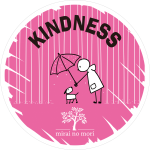
Being kind and compassionate to others means learning how to recognize what others are thinking and feeling, and what they desire. And by being considerate to others, it allows children to realize how others are being considerate to them.
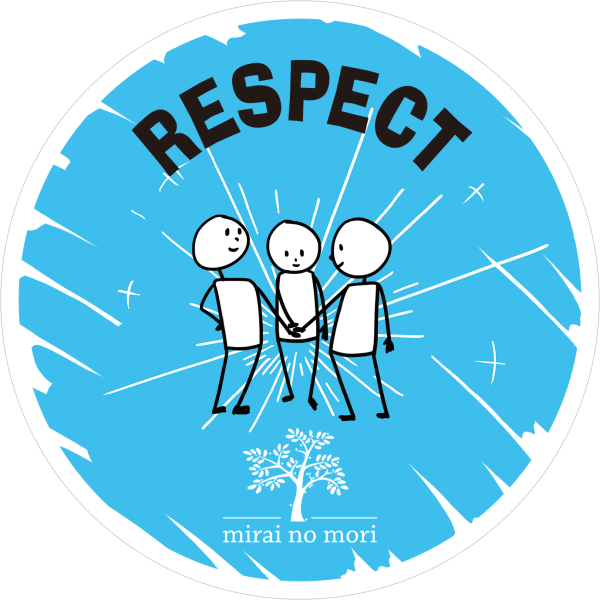 RESPECT
RESPECT
Having values, opinions, ideals, methods, etc. that are different from what you have does not mean they are wrong. By understanding that there are various ways to look at the world and respecting them, the children learn how to manage and navigate through the differences.
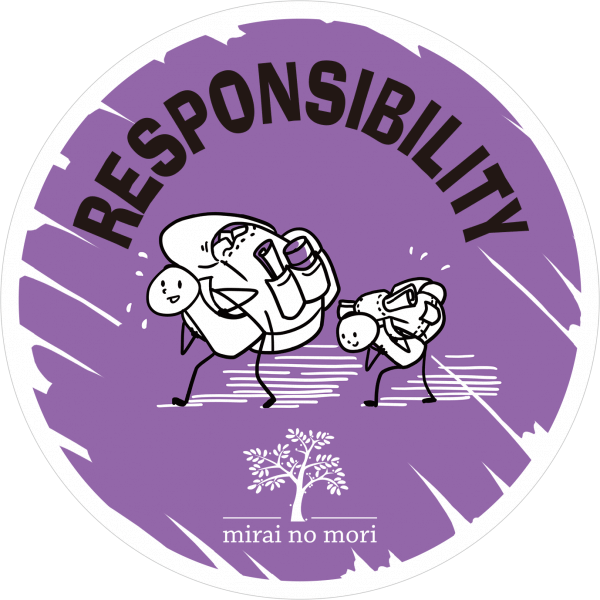 RESPONSIBILITY
RESPONSIBILITY
Children learn to be responsible for not just their belongings, but for their words and behavior. Taking responsibility for their actions can also teach them the importance of thinking ahead and being prepared.
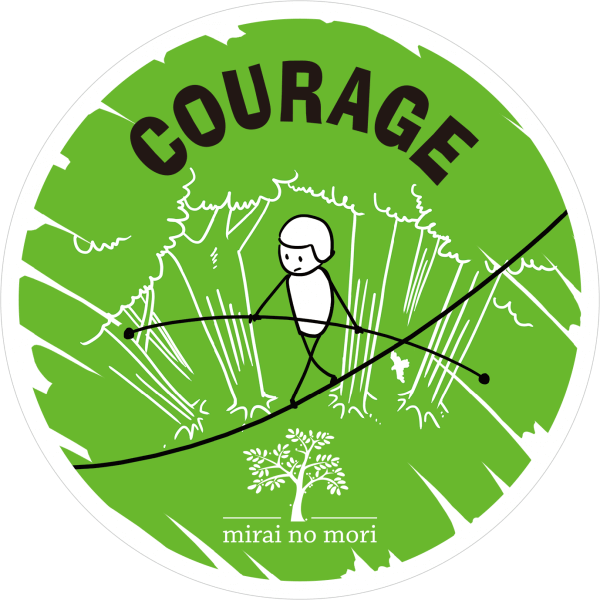 COURAGE
COURAGE
Different children faces different types of fear, such as talking in front of people, traveling on their own, or jumping off into a waterfall. By having courage to face their fear and try new things allow them to overcome their weak points, rediscover themselves, and open new possibilities.
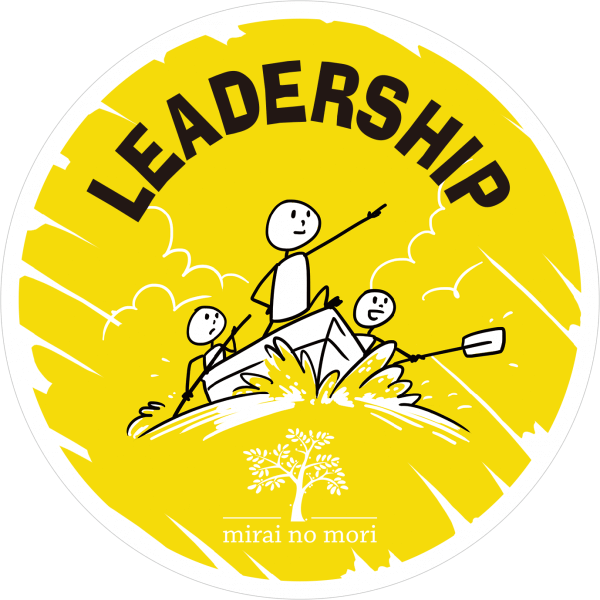 LEADERSHIP
LEADERSHIP
Being a leader teaches them how to set and plan to reach their goals, allowing them to obtain skills to create and follow their own path. It also strengthens their communication skills by bringing people and different opinions together.
Annual Programs
Throughout the year, Mirai no Mori stages both long-stay residential programs, which are designed to bring out the children’s maximum potential, and one-day programs that are intended to build on these results and take the children on to the next step.
Residential Programs
Children join activities in teams in the multi-day residential programs, usually held during summer break and on weekends. Unlike their daily life where adults are in charge, children must manage themselves and work together to enjoy all the activities. Being in the position to manage themselves, children learn the importance of teamwork and communication, and some children naturally start to show leadership. This program also gives repeating campers a chance to shine as they teach first-time campers and serve as role models.
Through camp life and various outdoor activities, the children learn to be self-reliant and responsible by managing their camp life and the equipment used for the activities. By spending a few days together, children begin to form trusting relationships with their peers and camp staff. In this secure environment, they are able to take on challenges that they normally would not, making this program full of “Camp Magic.”
One-day Programs
Monthly programs provide a variety of fun activities, such as hiking, crafts, forestry, and rafting, allowing children to explore and expand their interests. We also ask volunteers from sponsoring companies to join
the programs as role models. By joining these programs regularly and interacting with different adults, children encounter diverse cultures and values, as well as various occupations and lifestyles, allowing them to expand their possibilities for the future.
Leader in Training Program
This year-long program is for high school-aged children focusing on the transition to “independence.” Participants act as staff members in the monthly programs. The experience of being on the supporting side, rather than being supported, combined with various workshops, such as project management and public speaking, teaches them skills that directly apply to their independent life. Participants also join workplace visit programs to learn about different industries and workstyles, gain a more accurate image
of working life, and acquire the knowledge and attitude necessary to live confidently after leaving their care homes.
Our Impact
We had over 2,800 campers participate in our programs so far. And each of them has gained new experiences and grown in their own ways, thanks to our sponsors, volunteers, program staff, and care workers. Please see Our Impact page for more.